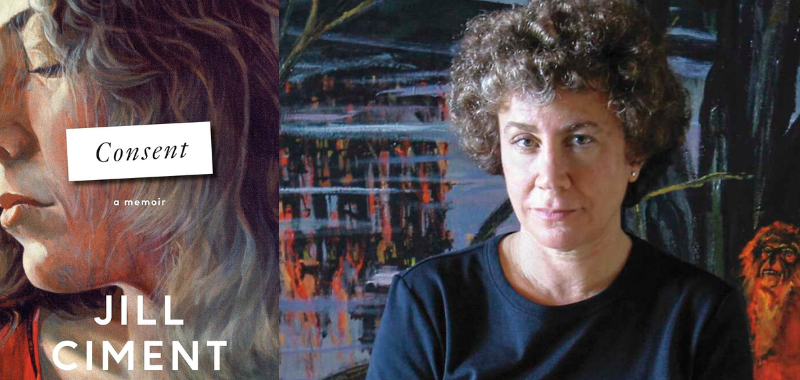First Draft: A Dialogue of Writing is a weekly show featuring in-depth interviews with fiction, nonfiction, essay writers, and poets, highlighting the voices of writers as they discuss their work, their craft, and the literary arts. Hosted by Mitzi Rapkin, First Draft celebrates creative writing and the individuals who are dedicated to bringing their carefully chosen words to print as well as the impact writers have on the world we live in.
Article continues after advertisement
In this episode, Mitzi talks to Jill Ciment about her new memoir, Consent.
Subscribe and download the episode, wherever you get your podcasts!
From the episode:
Mitzi Rapkin: We have been talking a lot about how things aren’t black and white in your relationship and history. Because it’s so gray, and you’re capturing it on the page, do you ever struggle with that sense of certainty? What is the relationship between certainty and writing? Because at some point you have to put down a sentence.
Jill Ciment: You know, when I first started writing, it was a very painful act. And, you know, really, after my second book, I almost gave it up because I was so miserable doing it. And so, I decided I was going to find a way to love writing. And if I didn’t, I was going to give it up. Because why would I spend my life doing something that was such a struggle for me? And so, when I gave up that idea of being miserable as an artist, you know, I began to see art very differently. I think it opened me up to new material, to a new way to write. When I was younger, I was very obsessed by the beauty of sentences, and I still think sentences have to be beautiful, but what makes them beautiful changed for me. When I was younger, what made them beautiful was an original metaphor or alliteration, whereas now what makes them beautiful to me is clarity and precision. You’ll see that is true of every young writer, their sentences are much more muscular and ornate when they’re younger, and they get more and more condensed and precise as they age. I think that’s because that’s the way the human mind thinks, and so that’s what makes writing interesting. Some people can write a book, write two books, maybe, but to go on and have a whole lifetime of writing books really requires that you are constantly changing who you are and accepting that and finding a way to make it new again to you. So, I think that, you know, I think aging as an artist is probably one of the most interesting subjects that isn’t really talked about a lot, because that’s the big challenge.
***
Jill Ciment is the author of Small Claims, a collection of short stories and novellas; The Law of Falling Bodies, Teeth of the Dog, The Tattoo Artist, Heroic Measures, Act of God, The Body in Question, and memoirs Half a Life and Consent. She has been the recipient of numerous grants and awards, among them a National Endowment for the Arts fellowship, two New York Foundation for the Arts fellowships, the Janet Heidinger Kafka Prize, and a Guggenheim fellowship. Ciment is a professor emeritus at the University of Florida. She lives in Gainesville, Florida, and New York City.

